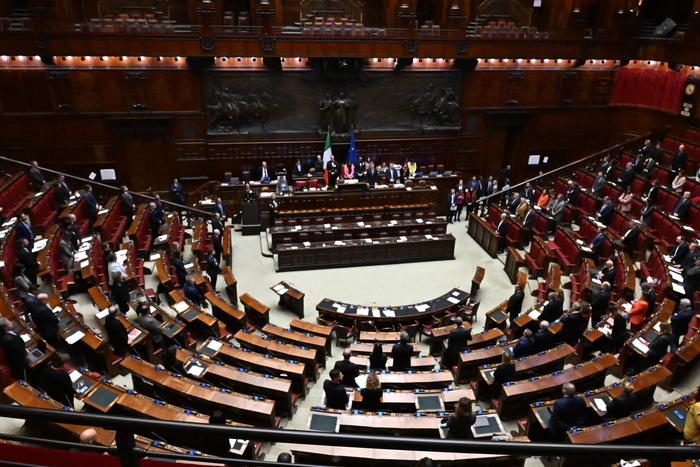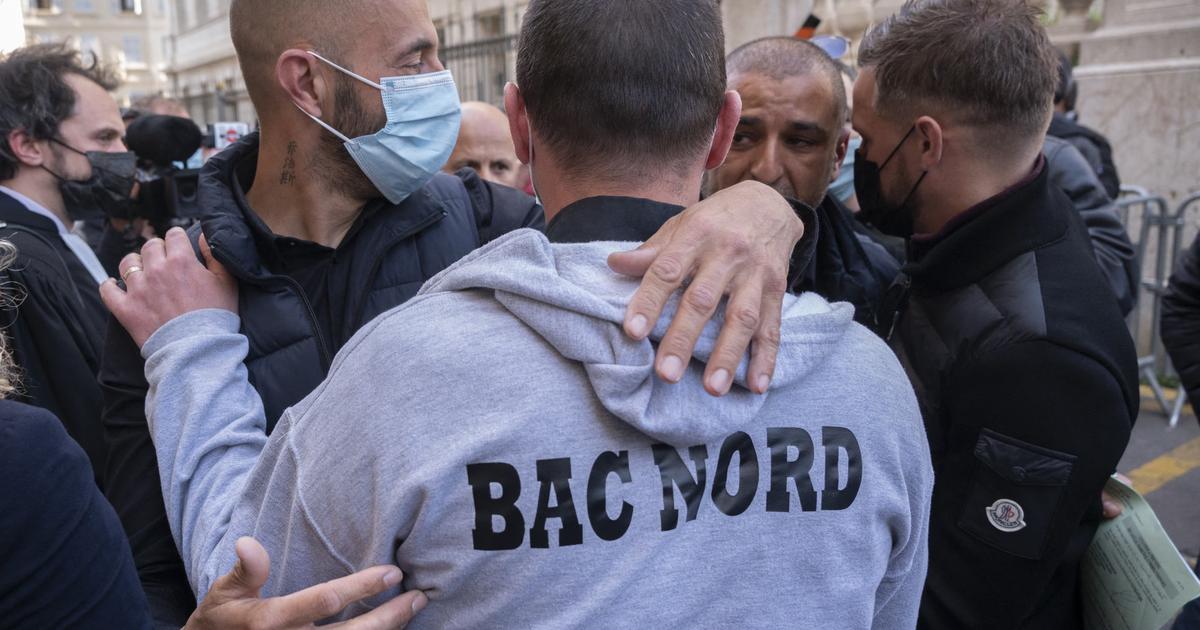The premiere in theaters this Friday of the French
Simone, the woman of the century
gives rise to a cinematographic journey through some of the films that have approached the arduous existence of real women dedicated to politics.
Her struggle, her passion, her training, her convictions and her ideals, in a world run by men, almost always reluctant or opposed to sharing any amount of power.
The other nine titles are on platforms.
Simone, the woman of the century
(2021), by Olivier Dahan
“We are made of what came before us, and with it we start the future,” said Simone Veil.
She was a teenager from a Jewish family persecuted by the Nazis and the Vichy French;
she was a survivor of Auschwitz, where her mother died, while her father and her brother were murdered in Lithuania;
Law student at the same time as a young mother;
magistrate;
high official of the Ministry of Justice, in the penitentiary area, where she fought to improve the subhuman conditions of prisoners in colonial Algeria at war with France;
Minister of Justice and Health;
first female president of the European Parliament.
Veil's life makes for many movies.
Perhaps for this reason Dahan —who had already brought another legend to the screen, the singer Edith Piaf, in
La vie en rosa
—
he has tried to cover all of them in his 140 minutes of footage, and in a work as vehement as its protagonist.
Although with two essences: the promulgation under his mandate of the first abortion law in France, and his ideals.
"They can't stand what you represent," her husband tells her in the face of protests from the extreme right.
Available in theaters.
In Her Hands: A Female Mayor in Afghanistan
(2022), by Marcel Mettelsiefen and Tamana Ayazi
Image from 'In their hands: a female mayor in Afghanistan'.
“Men have had their chance for 50 years.
What have they got?
Nothing!” cries Zarifa Ghafari, 26, the youngest mayor in Afghanistan, ruler of Maidan Shar, the capital of one of the country's 34 provinces.
The documentary covers just over two years in the life of Ghafari, from January 2020, with the US preparing to withdraw, 19 months before the fall of Kabul and the return to power of the Taliban, and until his return to the country. after having fled to Germany in fear for his life.
Always fighting for an education in freedom, mainly for girls, the young Afghan politician is always accompanied by her driver and bodyguard, steering wheel in one hand, pistol in the other.
With a Taliban presence and her theories (“If you crush a homosexual against a wall, you will end it”),
Available on Netflix.
Miss Marx
(2020), by Susanna Nicchiarelli
Romola Garai, in 'Miss Marx'.
Eleanor, young daughter of Karl Marx and the writer and thinker Julie von Westphalen, was her father's secretary, a collaborator of Engels and a writer of
The Woman Question, a socialist point of view,
as well as an activist in various left-wing and defender of workers' rights.
Nicchiarelli, another filmmaker specializing in female myths, as she had already directed
Nico 1988
,
about the singer of The Velvet Underground, establishes an interesting parallelism between Eleanor's vital and political attitude and punk, and accompanies her film with various musical anachronisms that end up exploding in the punk version of
The Internationale,
Performed by the American band Downtown Boys.
Her father, being a woman, never saw her as an equal, and her lover deceived her from start to finish.
She, a fighter for the self-sufficiency of women, ended up committing suicide with cyanide for love: the eternal contradictions of the human being;
the difficulties of practical life against theoretical postulates.
Available in Filmin.
My daughter Hildegart
(1977), by Fernando Fernán Gómez
Amparo Soler Leal in 'My daughter Hildegart'.
Hildegart Rodríguez Carballeira was a human being, but also a scientific and sociological experiment created by her own mother, Aurora and the same last name, from her conception: to be the woman of the future, which is said soon.
And the most surprising thing is that he was for a while.
A child prodigy, graduated in Law, the youngest lawyer in Spain in the 1930s, a member of the World League for Sexual Reform, a columnist for newspapers since she was 14 years old and with 15 books published, Hildegart was a product of a marked upbringing. imposed by her mother, with her gaze fixed on women's rights.
However, Aurora gave him her life, and she Aurora took it from her, by killing her when she was 18 and she was a world figure.
Fernán Gómez, with a script by Rafael Azcona, composed a sickly and harsh film,
Available in Flixole.
Suffragettes
(2015), by Sarah Gavron
Image from the movie 'Suffragettes'.
The documentary images that end the story excite and unnerve.
Half of humanity, that of women, was on the sidelines for too many years of any decision-making: they could neither vote nor be elected.
In the United Kingdom, until 1918. And they finally achieved it thanks to the drive and courage of figures like Emmeline Pankhurst, played by Meryl Streep in
Suffragettes,
one of the real characters that appear in Gavron's film: “We are fighting for a time when all the girls who come into this world have the same opportunities as their brothers.
Never underestimate the power of women to decide our own destiny."
The awareness of some women doomed to salaries much lower than those of men, to abuse of all kinds, including sexual abuse, who, fed up with their situation, managed to organize themselves, shout their slogans and achieve part of their objectives, despite opposition, manipulation, arrests and the shamelessness of male power.
Available on Amazon and Filmin.
The Queen of the Desert
(2015), by Werner Herzog
Nicole Kidman and James Franco in 'Queen of the Desert'.
At the other extreme of the fighters for the female vote stood, at the same time and also in the United Kingdom, the National Women's Anti-Suffrage League, of which Gertrude Bell, played in the film by Nicole Kidman, was honorary secretary.
The organization affirmed that the women themselves did not want to vote and that, as long as they were convinced that their place was in the housework, they would contribute nothing to improve decision-making.
The contradictory Bell, writer, political scientist and archaeologist, was a great specialist in the Middle East and was part of the British committee during the First World War that studied the possibilities of a part of the Arab tribes fighting against the Ottoman Empire.
There she received the support of the mythical TE Lawrence (of Arabia) and, as shown
The queen of the desert,
also the insults of some envious high military official: “A vain and repulsive charlatan: a lush-chested tomboy;
a wanderer with a restless ass”.
Herzog presents his work with an epic air between
Lawrence of Arabia
(music included) and
The English Patient.
Available in Filmin.
Merkel
(2020), by Stephan Wagner
Imogen Kogge plays Angela Merkel.
Based on a political investigative book by Die Welt
journalist
Robin Alexander, the film opens in July 2015, with Greece's sovereign debt crisis and its possible exit from the euro zone, driven mainly by the German finance minister. , Wolfgang Schäuble.
However, it ends up focusing on the refugee crisis in Europe of the same year, on the political intrigues of Markus Söder, Minister President of the federal state of Bavaria, opposed to Angela Merkel and her migration policy, and on conversations with European leaders, like the Hungarian Viktor Orbán.
Far, therefore, from a
biopic
to the use of the former German chancellor, with enormous personality and convictions, and close to series with fictitious characters such as
Borgen
.
In Spain, unfortunately, a film like this seems unthinkable today, either for cinemas or for television, starring Mariano Rajoy, Pedro Sánchez or any minister.
Available in Filmin.
Milada
(2017), by David Mrnka
Image of 'Milada'.
A member of the Czechoslovak resistance against Nazism, Milada Horáková was sentenced to death by a German court, a sentence later commuted to eight years in prison due to lack of evidence against her, managing to survive in various camps during the war .
A fighter for women's equality, a parliamentarian of her country and a full-fledged democrat, Horáková began her revolt against any type of totalitarianism after the arrival of the communist regime, after the 1948 coup, and was accused of treason and conspiracy.
“I am faithful to my convictions.
Freedom, equality, democracy, compassion.
No one in this country should be jailed and sentenced to death for their beliefs,” she said during the Soviet-run trial in 1950. This time she couldn't save herself,
Available on Netflix.
The Iron Lady (2011), by Phyllida Lloyd
Meryl Streep plays Margaret Thatcher in 'The Iron Lady'.
The story of Margaret Thatcher, the shopkeeper's daughter who was advised by her father not to follow the crowd but her own path, who was laughed at by her friends because she always had to study, and who got a place at Oxford University .
And later, much more: chemist, lawyer, parliamentarian, Minister of Education and Science, and Prime Minister of the United Kingdom, a pioneer in the position and the one who held it for the longest time in the 20th century.
Written, like
Suffragettes,
by playwright Abi Morgan,
The Iron Lady,
with an exceptional Meryl Streep, winner of her third Oscar, focuses on key moments in her political career, emphasizing her struggle with men, reluctant to let a middle-class woman, loaded with strength and inflexibility, step over them they.
And as a counterpart, the class resentment of a woman involved, already in her old age, in a ghost story that was nothing but her own.
Available in Filmin.
Frederica Montseny, the talking donut
(2021), by Laura Mañá
Image of 'Frederica Montseny, the lady who talks (2021)', by Laura Mañá.
"This is the woman who speaks," a girl tells her friend during a rally in a square in any Catalan town.
The concept of "the woman who speaks", in a Spain where women were not allowed to raise their voices, is sadly understandable.
That woman is Frederica Montseny, an anarcho-syndicalist of the CNT, who ends up shouting: “Down with the Republic!
Live anarchy!".
Mañá's film, with a rich structure in several times that are concatenated, establishes a continuous parallel around Montseny's deep political relationship with Francisco Largo Caballero, whom he first accused of abandoning the workers while he was Prime Minister of Labor that before he had been in the union, as a plasterer;
from which she later accepted her offer to enter a government presided over by him, as Minister of Health and Social Assistance,
the first woman in such a position in the history of Spain, and the place where she tried to promulgate a pioneering abortion law in Spain;
and, finally, with whom after the end of the Civil War she coincided in the French prison of Limoges, both as prisoners of Nazism after exile, and for whom Franco's Spain requested extradition.
Available in Filmin.

/cloudfront-eu-central-1.images.arcpublishing.com/prisa/T3GSWIZMFVDXJCVIXBXWFG55JY.jpeg)



/cloudfront-eu-central-1.images.arcpublishing.com/prisa/S6ARYN3A4ZF23EJ2KLKXTSQGII.jpg)


